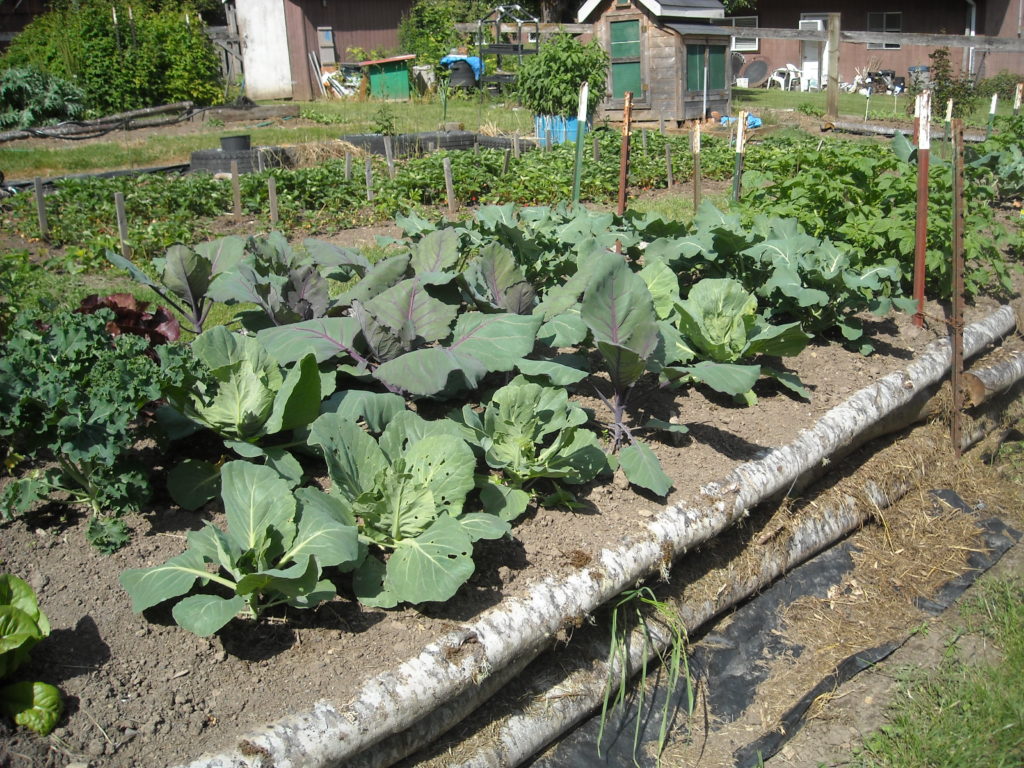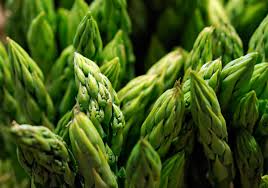How to Organically Prepare Garden Soil for Growing Heavy-Feeding Crops
Certain garden vegetables are heavy feeders and will deplete all the nutrients in the garden soil before the end of the growing season unless the soil has been properly prepared prior to planting.
Garden soil has to be prepared by heavily amending it with organic material and ground limestone before planting heavy feeders, like Asparagus, Broccoli, Brussels sprouts, cabbage, cauliflower, pumpkins, leeks, onions, peppers (large-fruited), and spinach.

Medium demand vegetables are corn, cucumbers, tomatoes, watermelons, peppers (small-fruited), eggplant, garlic, and lettuce. For optimum success in an organic garden, prepare the soil a year in advance by planting a soil-improving cover crop, like collards or turnips, and always rotate crops.
Add Organic Matter
Apply plenty of compost or well rotted cow manure to the garden soil. Cover the top of the garden spot with six inches of organic matter.
Add ground limestone at the rate of 5 pounds per 100 square feet of garden space where you will be planting heavy feeding crops. This will keep heavy feeding plants well supplied with calcium during the growing season. Ground limestone may only need to be added every three years, so do a soil test first to check the calcium level before adding limestone.
Till all of this into your garden soil to the depth of 10-12 inches and let the soil rest for two weeks.
Planting Time
Plant desired crops into prepared soil. Once the plants have reached 4-6 inches in height, keep the right spacing between the plant (transplant extra plants), and add 2 inches of organic mulch around each plants. The mulch will help retain soil moisture, prevent weed growth and supply nutrients to the soil as it slowly decomposes.
Add a side dressing of compost in mid-summer to help keep the plants fed until harvest time. If you have a smaller backyard garden, then you can collect leaf clippings, food scraps from the kitchen (no meat), coffee grounds and grass clippings from mowing the yard. You compost these to make the Midsummer feeding of the plants. You can also buy organic fertilizer from the home and garden stores and use this to supplement your vegetable garden’s growth.
Cover Crop
Sow a winter cover crop in your organic garden to prevent soil erosion and improve soil structure. Sow collards, turnips, rye grass, alfalfa or soybeans and allow to grow throughout the winter, then till under as green manure before planting crops next spring. Plant a winter cover crop for your entire organic garden, not just the areas where heavy feeding crops will be grown.
Crop Rotation
The best method to prepare garden soil for growing heavy feeders is crop rotation. Plant crops in a different location each year. This garden crop rotation helps prevent soil from being depleted of nutrients and helps prevent the growth of crop-destroying pathogens. Use the three-year rotation rule for best results in an organic garden- wait three years before planting the same crop in the same location again.
Raised beds for your backyard gardening projects
Raised beds benefit your garden in many ways. Some people use garden boxes, concrete blocks, landscape logs, rocks, and other material to create a raised bed. You might want to choose a raised bed for growing your organic vegetables because they help keep the weeds out of your growing area while protecting the garden soil from being compressed by walking on the growing area.
Raised beds also provide better drainage as well as a barrier to slugs and snails. By having your raised garden bed you’re also extending your growing season as well as making the task of weeding the garden easier. If you have poor native soil in your garden, then using the raised bed method makes it easier to bring in organic soil for your plant’s optimum growth. Having fresh composted organic soil makes it easier for the plants roots system to grow deeper and stronger.
PS: Do you, the reader, have any additional ideas to share?
